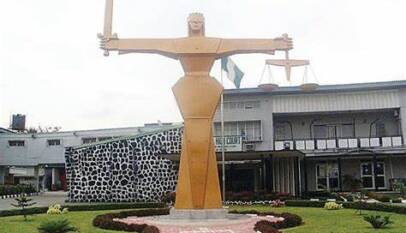DNA Report Place Men on Quest for Paternity Tests
NIGERIA: There is tension in many Nigerian homes as men angle to know the right paternity of their children in the wake of a recent report that showed that more than 27% of children born in Nigeria are given to the wrong fathers.
Our findings showed that the report released by Smart DNA, a leading DNA testing centre in Lagos, has raised the curiosity of men who are increasingly desirous of timely tests to determine the true paternity of their children.
Many women are against their spouses’ requests for DNA tests on their offspring for reasons ranging from signalling disrespect, lack of trust and questioning their fidelity.
“It is only lack of trust that will make a man ask for DNA except for legal or emigration purposes. A man who desires DNA tests on his children has shown that he is no longer ready for marriage,” a lady simply identified as Grace said.
It would be recalled there have been many sensational reports of DNA tests showing that prominent Nigerians, including judges, not being the biological fathers of the children that they are raising.
The Smart report, which covered paternity tests conducted in Nigeria between a year from July 2023 and June 2024, and many recent report of failed test are heightening quests by fathers across the country to confirm the paternities of their children, even though many wives and mistresses are against it.
In 2023, Ken Mitini, a Port Harcourt-based businessman discovered that he was not the father of his 12-year-old son. This was revealed by a DNA test done shortly before the family of five was to travel to the UK.
His wife would later confess to having an affair with a Delta state-based politician, who fathered the children that Mitini had loved and catered for in 12 years.
Similarly, James (surname withheld), a London, UK-based Nigerian, only discovered that he was raising another man’s daughter when the child was five.
“He made the shocking discovery despite the lady’s insistence that he fathered the child during a brief relationship when he visited Nigeria. The lady had been receiving child support from him until he secretly collected the child’s hair and sputum for the DNA,” a source close to the man in his mid-40s revealed.
In January 2023, a pained Delta State judge, Anthony Okorodas, revealed that DNA tests proved he was not the father of his three children, including two undergraduates, from his first wife.

Judge Okorodas: found out none of his ex-wife’s 3 children are his
He said, “I received information from an anonymous source that indicated that the last of the three children from my previous marriage was not my biological child. This repulsive act of my ex-wife prompted me to conduct DNA tests concerning the two other children. A few days ago, the results came out.”
“Sadly, none of them is my biological child,” he said.
This latest report by Smart DNA is reopening the traumas of men like Mitini, James and Judge Okorodas, who fathered children that are not biologically theirs. It is also creating anxiety among men who are now looking at their children with suspicion and doubt.
“This will cause more inquiries (DNA) by men desirous of the assurances that they are not just surrogates for the children they are investing their resources, love, care and attention on,” a midwife at the Federal Medical Centre, Asaba, said.
Not surprisingly, recent DNA trends showed that nearly 90% are requested by men, who desire ‘peace of mind’ in their relationship rather than for legal or immigration purposes.
Elizabeth Digia of Smart DNA emphasized that these findings offer a unique window into the evolving dynamics of Nigerian families and society, stressing, “The high rate of negative paternity tests and the surge in immigration-related testing are particularly noteworthy and warrant further discussion and research.”
Meanwhile, a further look at the report revealed that about 3/4 of the tests were conducted in Lagos, making the state the DNA test capital of Nigeria, just as the Mainland and Island account for 67.5% per cent and 32.5 per cent respectively.
Furthermore, Yorubas of Southwest requested %3% of the tests, followed by Igbo (31.3%), Hausa (1.2%), and others (14.5%), just as the data showed that more DNA tests were requested for male children (52.8%), compared to 47.2 for female children.
Children tested were in the 0-five (54.0%) bracket, revealing a growing preference for early paternity confirmation, while men aged 41+ (45.6%) and 31-40 (37.0%) were most likely to request test
Meanwhile, DNA testing centres are springing up across the country as men seek assurances over the children they are raising.
The trend is going to continue and it is expected to significantly impact relationship and families in the years ahead.































